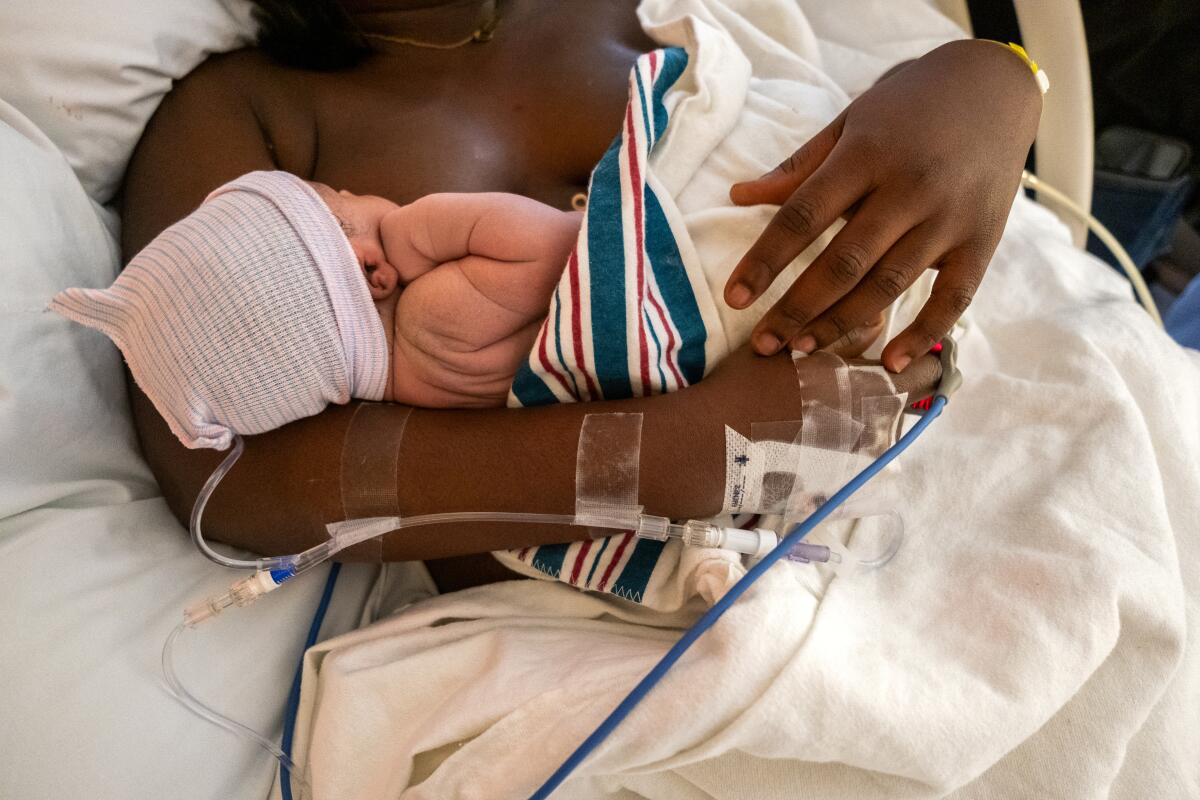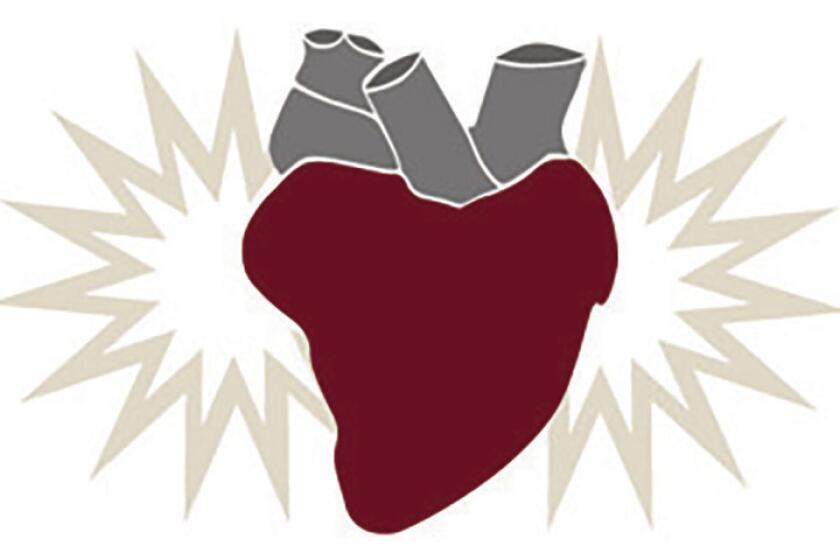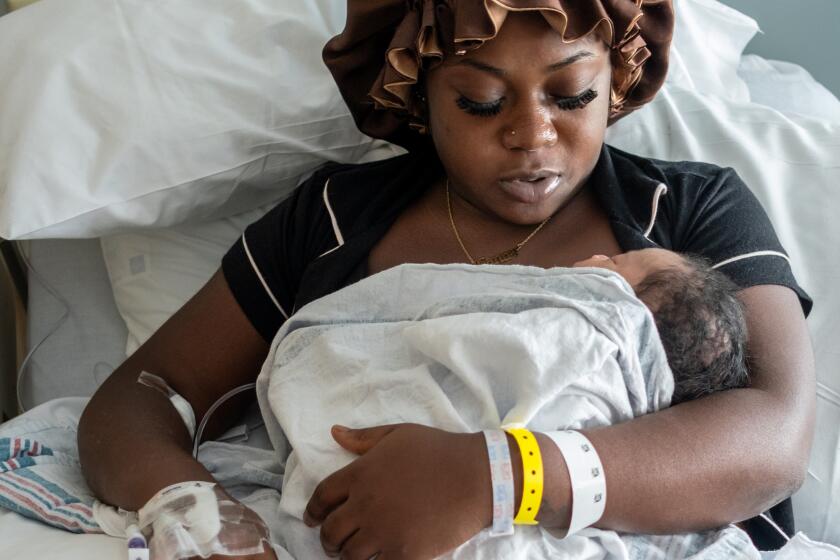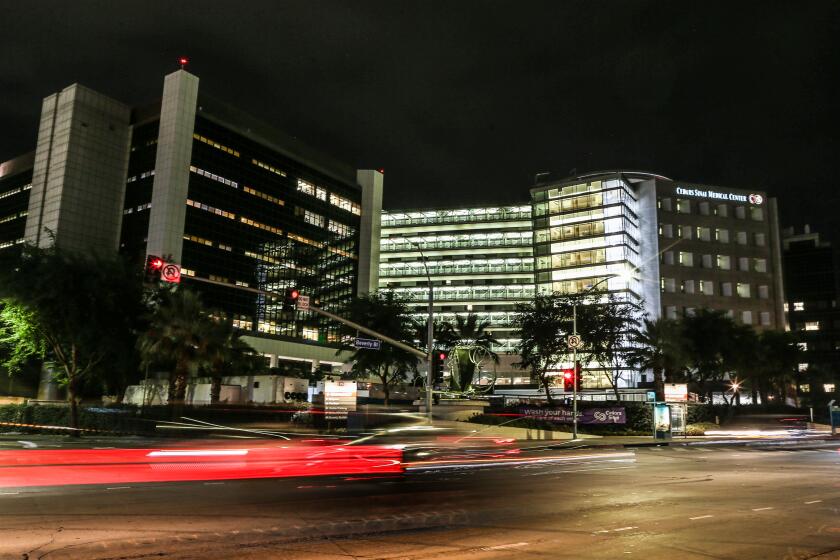California hospitals lagged in anti-bias training for pregnancy care providers

California hospitals and clinics were slow to carry out mandated training intended to combat unconscious bias among workers who care for pregnant patients, the state Department of Justice found in a newly released investigation.
Less than 17% of facilities that provided information to the state agency had initiated “implicit bias training” in the year after California started requiring it for pregnancy and childbirth professionals, according to the report unveiled Friday by California Atty. Gen. Rob Bonta.
The numbers shot up after Bonta prodded healthcare providers about their training plans: As of summer 2022, more than 93% of medical facilities that responded had trained at least some of their staff, according to the state investigation. By that time, an average of 81% of staff in responding facilities had finished the required training, the investigation found.
Nearly a third of health facilities contacted by the Department of Justice launched their training programs only after the agency reached out to them, the report found.
The state law went into effect just weeks before the COVID-19 pandemic erupted, but Bonta and other state officials rejected that as an explanation or excuse for delays, saying the required training could be accomplished through an online video.
“It was doable then, “ Bonta said at a news conference Friday in Leimert Park. “It’s doable now.”
The training mandate was prompted by concerns that implicit bias — unconsciously held attitudes about members of a specific group — can steer the decisions of medical providers, undermining patient care.
In humans, the distance between the brain and heart can be a foot or more.
SB 464, which was passed four years ago, required California hospitals, clinics and birthing centers that care for patients in pregnancy and childbirth to confront that problem by rolling out implicit bias programs for their staff. “Refresher” trainings for healthcare providers are also required every two years.
Los Angeles County Supervisor Holly Mitchell, who authored SB 464 as a state senator, said that while drafting the law, she and others were appalled to learn about persistent misconceptions about Black women among medical students. Mitchell said surveys showed that “they thought our threshold for pain was higher, that our skin was thicker and more difficult to penetrate to receive medication.”
To think that such attitudes persisted in 2019 “literally took our breath away,” she said.
SB 464 spelled out specific requirements for the training content, including identification of unconscious biases; corrective measures to reduce such bias at both the interpersonal and institutional levels; and information on the effects of historical and contemporary exclusion and oppression of minority communities.
State officials said such training is urgent due to the crisis facing Black patients in childbirth. Across the country, Black women have been about 2½ times more likely than their white and Latina counterparts to die during pregnancy, childbirth and its aftermath, according to data from the Centers for Disease Control and Prevention. In a national survey, 30% of Black women reported mistreatment during maternity care and 40% reported discrimination; both rates were much higher than among white or Asian American women.
MLK Community Hospital employs midwives to try to improve births for Black women, a practice that hospital officials fear could be difficult to sustain.
California has reduced its rates of maternal death over time, but they have remained more than three times higher for Black patients than for those of many other racial and ethnic backgrounds.
“Far too many Black women are dying during and post-childbirth in L.A. County, in the state of California, and across the country,” Mitchell said Friday. “And what’s so deeply offensive about that is it’s within our power to change that.”
In L.A. County this year, family and friends called for justice after the deaths of April Valentine and Bridgette Cromer, also known as Bridgette Burks. Both were Black women who lost their lives after childbirth at local hospitals. Both hospitals were faulted by state investigators in the aftermath of their deaths.
Mitchell said it was painful to see that women in her county district had “died unnecessarily because they weren’t listened to, they weren’t attended to, they were in hospitals who should and must do better.”
A spokesperson for the California Hospital Assn., which supported the legislation, said hospitals in the state are committed to reducing health disparities and “still working toward full compliance despite the challenges created by the COVID pandemic that surfaced just a few months after” SB 464 passed.
The U.S. Department of Health and Human Services’ Office of Civil Rights is investigating the hospital over how it treats Black women needing labor and delivery care.
Californians can check how far their local hospitals had gone toward training staff as of last year: The report released Friday includes a list of facilities that provide pregnancy care and the percentage of their covered staff that had finished the required training by July 2022. Across the state, those figures ranged from 0 to 100%.
Bonta said deadlines for finishing the required trainings, clear mechanisms for state enforcement, and consequences for hospitals that flout the California law are needed to improve compliance. He said he was committing to working with state lawmakers “to address these issues with future legislation.”
More to Read
Sign up for Essential California
The most important California stories and recommendations in your inbox every morning.
You may occasionally receive promotional content from the Los Angeles Times.














